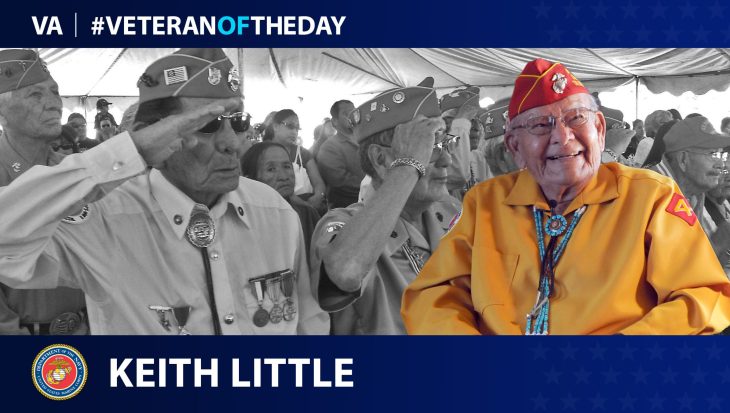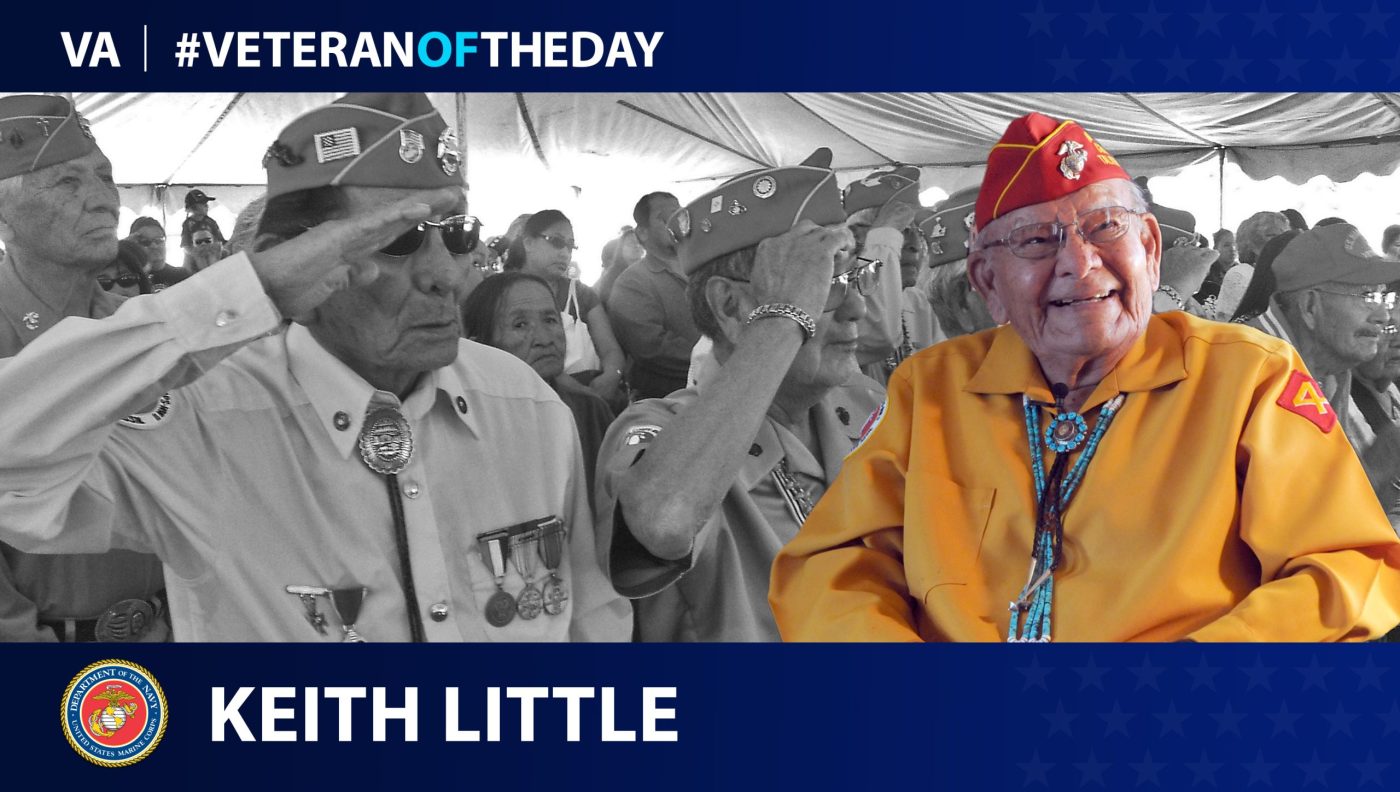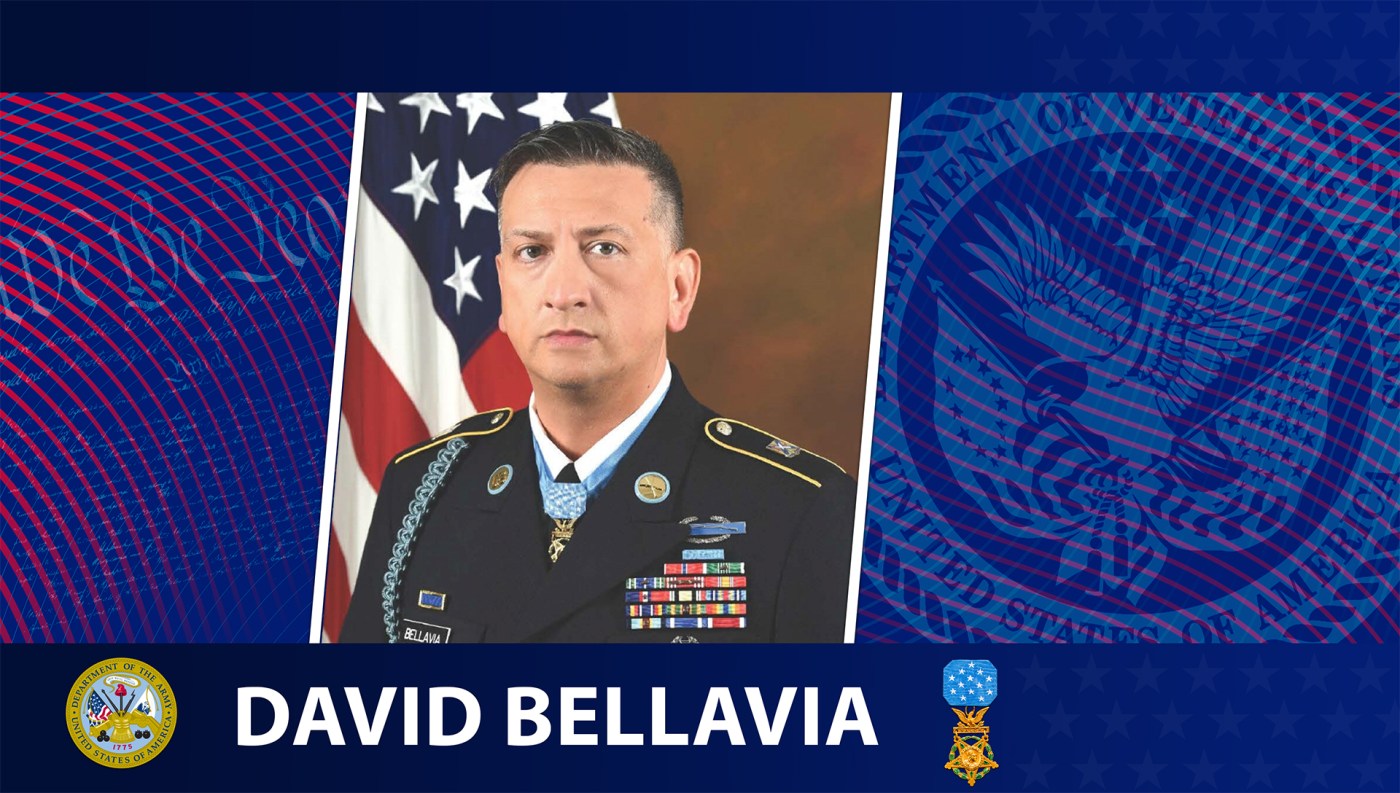November 21, 2022: Keith Little

Growing up, Keith M. Little was discouraged from speaking Navajo in school. Having only been taught Navajo growing up in the Tó Dích’íi’nii clan, it wasn’t until he attended a federal boarding school that he and his peers would be punished for not speaking English. Over and over again, if caught speaking Navajo, the teachers would make them write, “I will talk English. I will not talk Navajo.” This was a stark contrast to the summer of 1942, when he joined the U.S. Marines at the age of 17 and used Navajo every day in a secret code to confuse enemy militants.
Little was an orphan, raised by his sisters and extended family in Arizona, and got his education at a federal boarding school. There, he learned English and completed his high school education. However, upon hearing about the attack on Pearl Harbor, he was passionate to join the Marine Corps. He had seen advertisements and posters about the Marines and, in a 2011 interview, stated that he too wanted to be a part of the “greatest fighting people in the world.” He joined the Marines in 1942 and began training at Camp Pendleton. Upon finding out he was Navajo, he was enrolled in the Communication School Training Center at Camp Pendleton to learn the code that had been developed in Navajo to communicate war terms. Navajo words, such as “eggs,” became code for “bombs” and the word “turtle” became code for “tank.” What made the code so unique was how it was based on an unwritten language and was therefore undecipherable by enemies.
After training, Little was stationed in the Marshall Islands, Saipan, Iwo Jima and Roi Namur, all located in the western Pacific Ocean. He returned home in 1945, thankful to come back, as many of his fellow Marines had not. Reflecting upon his return, Little said, “You find that a lot of people who have seen the worst end of it don’t talk about it. There’s a lot of guilty feeling on the survivors.”
Little dedicated the remainder of his life to advocating for the Navajo language and the preservation of Navajo traditions. He specifically hoped to fulfill his dream of creating a museum not far outside of the Navajo Nation capital, Window Rock, Arizona, with artifacts and history of Navajo Veterans and traditions. He was the president of this initiative and spent up until the end of his life fundraising for the museum. The Navajo Code Talkers were formally recognized in 2000 for their service with the Congressional Silver Medallion from U.S. President Bill Clinton. Before his death, Little never got to see the museum built, but his legacy and that of other Navajo Code Talkers lives on through the Navajo Code Talkers Archives.
Little died in January 2012 at Fort Defiance Indian Hospital in Fort Defiance, Arizona. He was 87 years old.
We honor his service.
Nominate a Veteran
Do you want to light up the face of a special Veteran? Have you been wondering how to tell your Veteran they are special to you? VA’s “Honoring Veterans” social media spotlight is an opportunity to highlight your Veteran and his/her service.
It’s easy to nominate a Veteran. Visit our blog post about nominating to learn how to create the best submission
Writer: Sarah McDonald
Editors: Ashley Shaut, Cynthia Xu
Researcher: Christopher Rosenquist, Chenou Yang
Graphic Designer: Saul Leon
Topics in this story
Link Disclaimer
This page includes links to other websites outside our control and jurisdiction. VA is not responsible for the privacy practices or the content of non-VA Web sites. We encourage you to review the privacy policy or terms and conditions of those sites to fully understand what information is collected and how it is used.
More Stories
This week’s Honoring Veterans Spotlight honors the service of Army Veteran David Bellavia, who received a Medal of Honor from the Iraq War’s deadliest operation, the Second Battle of Fallujah.
This week’s Honoring Veterans Spotlight honors the service of Army Veteran Scotty Hasting, who served in Afghanistan.
This week’s Honoring Veterans Spotlight honors the service of Army Veteran Roy Sheldon, who served in 97th General Hospital in Frankfurt, Germany.






